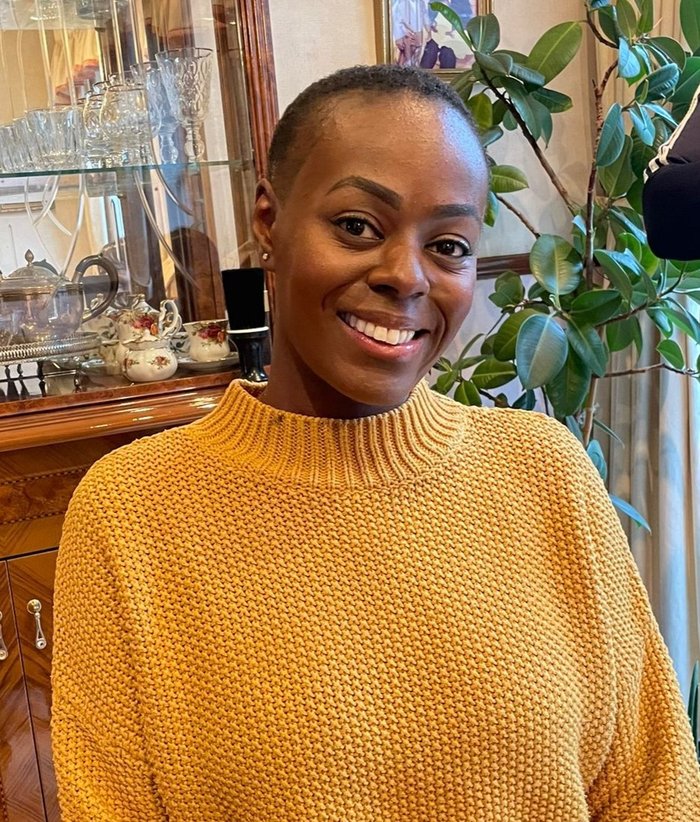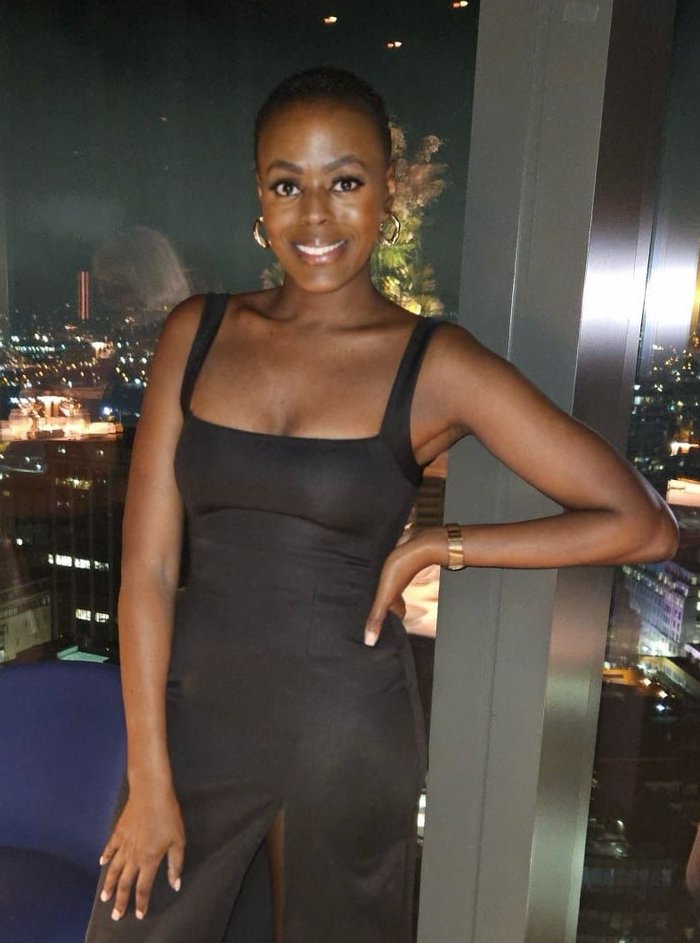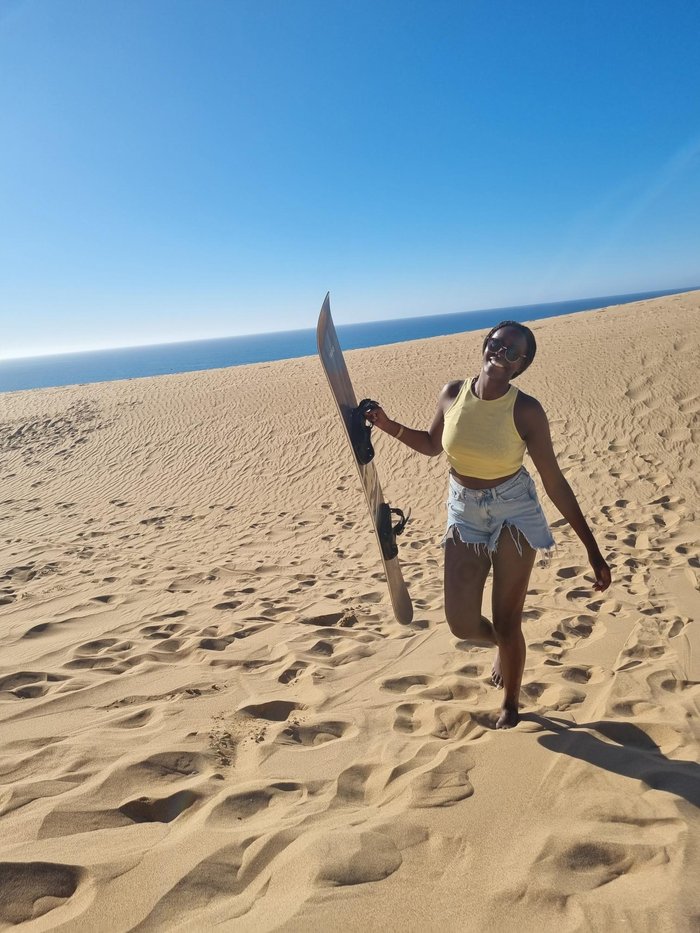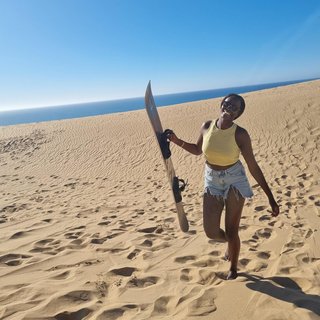Facing Hodgkin lymphoma head on
Nadine is having treatment for Hodgkin lymphoma. She explains how she's struggled to find support that represents her as a young black woman, but has found connection on social media.

I found out I had Hodgkin lymphoma in January 2024, but it took several weeks of going back and forth between the GP, urgent care and A&E before I got the diagnosis. I had swollen glands in my neck, but I kept being told they were down to viral infections, despite not having any other symptoms of infection.
When the lumps hadn’t gone down after four weeks the GP took it seriously, but then I was faced with a wait for an ultrasound, followed by a seven week wait for urgent cancer investigations due to backlogs on the NHS. Fortunately, I was able to access private healthcare through my work which sped things up, but it was still a long and stressful journey.
The next steps
As soon as I got the diagnosis I had lots of questions. I wanted to know what we do next. What are the next steps? I was told I had stage 2A unfavourable Hodgkin lymphoma. It means I’ll need slightly longer treatment, which was a blow to hear. I’ll need six months of chemotherapy, but my consultant has said once that’s over I should be cured. So it’s all been quite positive, and I’m trying to stay focused on that.
Treatment is tough but I’m feeling hopeful
At the time I’m writing this I’m still going through treatment. I’m having chemotherapy every two weeks for six months. I struggled massively with round one. It really took a toll on my body and I wondered how on earth I would manage this for six months.
Round two was slightly easier but not without its challenges. I still struggled massively. I’m still learning how to tolerate the chemo and working out a pattern for how my body deals with the side effects. But I can feel my lumps reducing as the treatment goes on, which gives me amazing hope.
The diagnosis and treatment have had a huge impact on me. Physically of course, but also mentally. I feel as if I am in survival mode.
I now have regular counselling, but I don’t think I am yet able to really deal with the mental and emotional trauma all of this has brought. It’s also had a big impact on my family and friends. They are rallying around helping me, whilst also navigating their emotions and trying to put me first.
Therapy is great, but I’ve also been finding ways to support myself and lift myself up. I knew the treatment was likely to cause hair loss, so I cut off my hair. I hated it at first and didn’t want to look in a mirror. But I did a photo shoot focusing on my new hair and falling in love with this new look. That was amazing and really empowering.

I’ve struggled to find support that represents me
When it comes to support networks, as a young black lady, finding a support system that feels representative of me has been very difficult. I’ve been directed to some cancer support groups, including one near me, but when I walked in it was all older ladies. They were amazing women, and we were able to talk about our experiences of cancer. However, it's difficult when you just want someone that understands and gets what you’re going through, that’s also around your age group with a similar cultural background to you.
There are differences in how people from different backgrounds speak about cancer.
In my experience, as a black woman, I see differences in my community in how much we share, and how open we are about cancer, compared to people from other backgrounds.
So being able to talk to other people who are not only just a similar age to me, but also look like me is important. But unfortunately I struggled to find a support group representative of young black cancer patients within my geographical region.

Since my diagnosis I’ve been sharing my experience on TikTok and Instagram, and that’s where I’ve made a lot of connections. I’ve had people in their 20s and 30s from a similar background reaching out and saying “Hey, I’m in Birmingham too and I’ve had a similar experience or I’m still going through it.”
It’s nice to have people reach out, but it can also be overwhelming.
My advice to anyone that wants to go public on social media is to be mindful that you can be flooded with messages. It might be on a day when you’re absolutely knackered, and you can’t respond to everyone. It can feel overwhelming, but I also really take gratitude in the support that’s there.
I’ve stepped out of my comfort zone to raise awareness
I’m usually a very private person, so sharing what I’m going through has been a challenge. But I want to take my diagnosis and make something good out of it. That means stepping out of my comfort zone and using my experience to raise awareness of blood cancer, especially among the black community. I want people to know what symptoms to look out for, and also know that they are not alone.
There’s much more I want to do, but my first action is to complete the Walk of Light to raise money for Blood Cancer UK. I’m doing it to face my diagnosis head on and raise awareness. Not only of the different types of blood cancer out there, but to shine a light on every person with blood cancer. I hope that doing this walk will not just be a performative act, but something that inspires hope in others.


